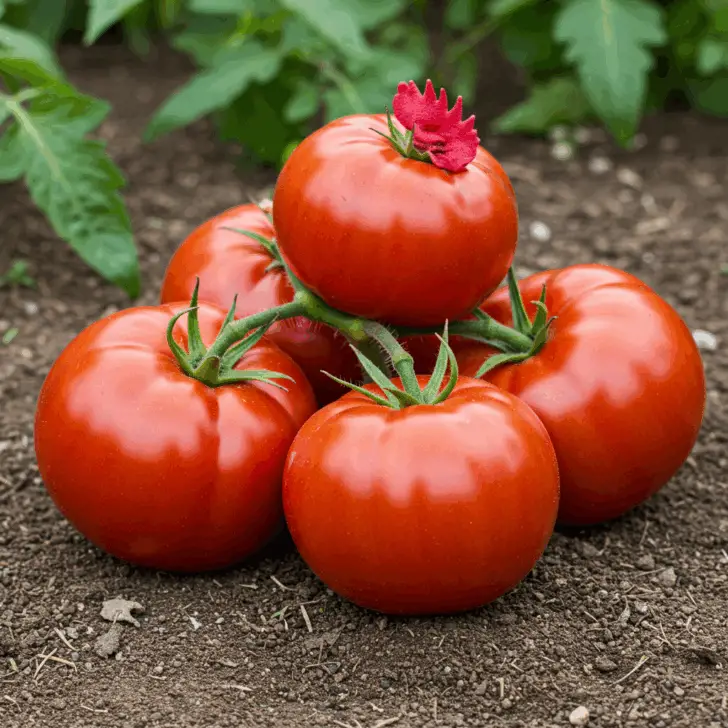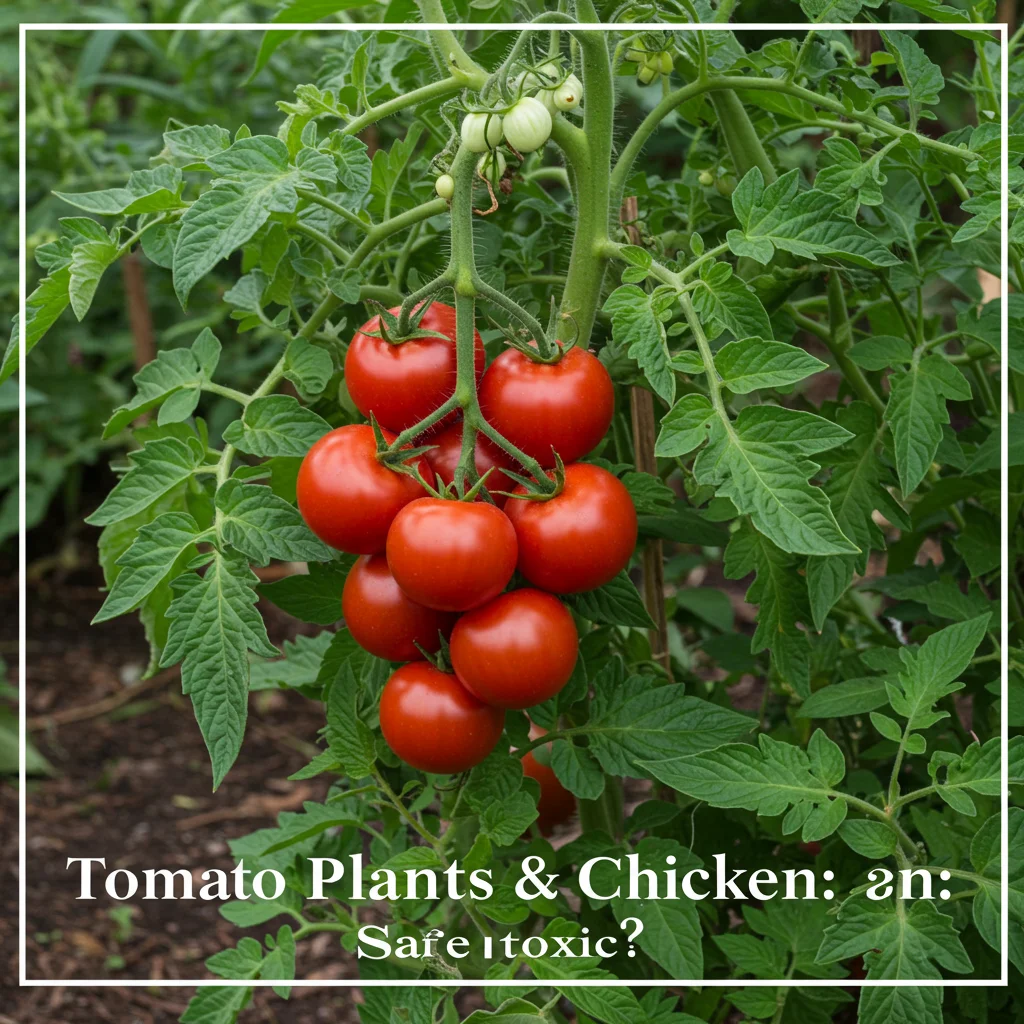This comprehensive guide explores the relationship between tomato plants and chickens, addressing the crucial question: are tomatoes safe or toxic for your feathered friends? We’ll delve into the benefits and risks, explore which parts of the tomato plant are safe for chickens to consume, and offer practical tips for protecting your flock and garden.

Introduction:
Raising chickens can be a rewarding experience, providing fresh eggs and natural pest control for your garden. However, it’s essential to be mindful of what your chickens consume. Tomatoes, a garden staple, often raise concerns for chicken keepers. This article aims to clarify the complexities surrounding tomatoes and chickens, providing a clear understanding of the potential benefits, risks, and best practices for integrated garden management.
JUMP TO TOPIC
Are Tomato Plants Safe for Chickens?
The relationship between chickens and tomatoes is nuanced. While ripe tomatoes are generally safe and even beneficial for chickens, other parts of the tomato plant pose potential risks. Understanding these distinctions is crucial for responsible chicken keeping.
Ripe Tomatoes: A Nutritious Treat
Ripe, red tomatoes are a healthy and delicious snack for chickens. They are packed with vitamins A and C, antioxidants, and other essential nutrients that can boost your flock’s immune system and overall health. Chickens often relish pecking at ripe tomatoes directly from the vine, contributing to natural pest control by preventing overripe fruits from attracting unwanted insects.
Green Tomatoes and Tomato Plants: Exercise Caution
The leaves, stems, and unripe (green) tomatoes of the tomato plant contain solanine, a toxic compound belonging to the alkaloid family. Solanine serves as a natural defense mechanism for the plant, deterring herbivores. While chickens are generally more resistant to solanine poisoning than other animals, consuming large quantities of green tomatoes or plant parts can still be harmful. Symptoms of solanine poisoning in chickens can include lethargy, diarrhea, loss of appetite, and in severe cases, neurological issues.
Safe Tomato Consumption for Chickens
Ripe, red tomatoes: Offer these as occasional treats or allow chickens to forage for fallen, overripe tomatoes in the garden.
Tomato scraps from the kitchen: Chopped tomato pieces from your meal preparations can be a healthy addition to chicken feed. Avoid giving them green parts or spoiled tomatoes.
Limited exposure to tomato plants: While not ideal, occasional pecking at tomato leaves likely won’t cause significant harm. Monitor your chickens’ behavior and remove them from the area if they exhibit excessive interest in the plants.
Protecting Your Tomato Plants and Chickens
Balancing the benefits of free-ranging chickens with the need to protect your tomato plants requires careful management. Here are a few strategies:
Fencing: Create dedicated areas for your chickens and your tomato plants, using fencing to keep them separate. Consider raised beds or trellising tomatoes to make them less accessible.
Distraction: Provide alternative foraging opportunities for your chickens, such as a dedicated compost pile or a separate area with chicken-friendly plants.
Timing: Introduce chickens to the garden after the tomato harvest is complete, allowing them to clean up fallen fruit and leftover plant debris while minimizing the risk of consuming green tomatoes.
* Monitoring: Regularly observe your chickens’ behavior in the garden. If they seem overly focused on the tomato plants, take action to redirect their attention or separate them from the area.
[Internal Link: Guide to Chicken-Friendly Gardens] (If a page with this title or similar keywords exists)
[Internal Link: Raising Chickens for Beginners] (If a page with this title or similar keywords exists)
FAQs: Tomatoes and Chickens
Q: Can baby chicks eat tomatoes?
A: It’s best to avoid feeding tomatoes to very young chicks, as their digestive systems are still developing and more susceptible to potential toxins. Stick to chick starter feed for optimal growth and health.
Q: How much tomato is too much for a chicken?
A: While ripe tomatoes are generally safe, moderation is key. Offer tomatoes as a supplemental treat, not a primary food source. Monitor your chickens for any digestive upset.
Q: What are the signs of solanine poisoning in chickens?
A: Symptoms can include lethargy, diarrhea, loss of appetite, weakness, and neurological problems. If you suspect solanine poisoning, contact a veterinarian immediately.
Q: Are cherry tomatoes safe for chickens?
A: Yes, ripe cherry tomatoes follow the same guidelines as larger tomatoes. Ensure they are fully ripe and offered in moderation.
Conclusion
Integrating chickens and tomato plants in your garden can be a mutually beneficial practice. By understanding the potential risks and benefits and implementing appropriate management strategies, you can ensure the health and well-being of both your flock and your garden. Provide your chickens with the joy of foraging for ripe, fallen tomatoes while safeguarding them from the potentially harmful effects of solanine in green tomatoes and plant parts. Through mindful observation and a balanced approach, you can create a thriving ecosystem where chickens and tomatoes coexist harmoniously.

